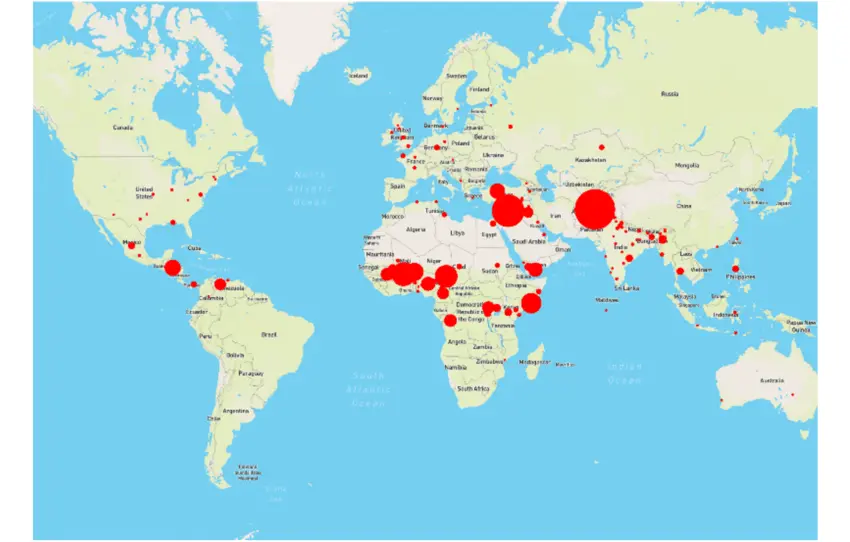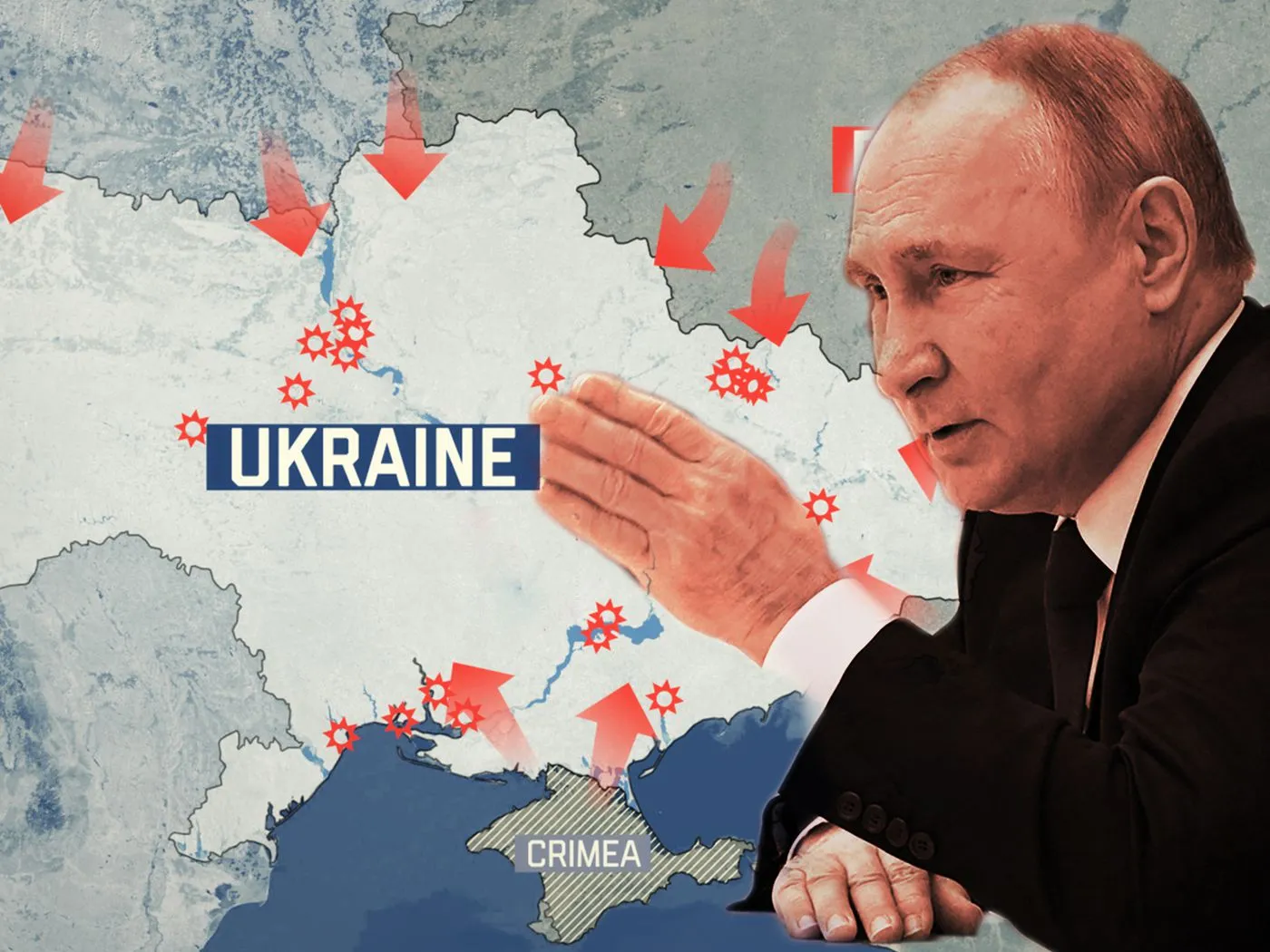In an increasingly interconnected and volatile world, terrorism has become one of the greatest threats to global security. This article explores the complex issue of terrorism and counterterrorism from a global perspective, examining the causes, methods, and consequences of terrorist activities around the world.
History of terrorism
Terrorism has a long and turbulent history, dating back centuries. The origins of modern terrorism can be traced back to the late 19th century, with the rise of nationalist movements and anarchist groups. The Irish Republican Army (IRA) and the Basque separatist group ETA are examples of organizations that emerged during this time and employed terrorist tactics to achieve their political goals. The 20th century witnessed an increase in terrorism, particularly with the rise of extremist ideologies such as fascism and communism.
Terrorist attacks have taken various forms throughout history, including bombings, hijackings, and assassinations. Notable acts of terrorism include the 1972 Munich Olympics massacre, the bombing of Pan Am Flight 103 in 1988, and the 1995 Oklahoma City bombing. Each of these incidents left a lasting impact on global security and prompted governments to take action against terrorism.

Causes and motivations behind terrorism
Understanding the causes and motivations behind terrorism is crucial for effectively addressing this issue. Terrorism is often fueled by a combination of factors, including political unrest, religious extremism, and socioeconomic grievances. Political instability, marginalization, and a lack of economic opportunities can create an environment ripe for extremist ideologies to take root.
Religious extremism also plays a significant role in motivating acts of terrorism. Radicalized individuals or groups may interpret religious texts in a way that justifies violence and terrorism as a means to achieve their objectives. This distorted interpretation of religious teachings can lead to the recruitment and radicalization of individuals who become willing participants in acts of terror.
Global impact of terrorism
From the devastating 9/11 attacks in the United States to the rise of extremist groups like ISIS, the impact of terrorism knows no borders. The consequences of terrorism are far-reaching, affecting not only the direct victims but also societies as a whole. Terrorism instills fear, disrupts daily life, and undermines trust in governments and institutions.
Economically, terrorism can have a significant impact, particularly in regions heavily reliant on tourism or foreign investment. The threat of terrorism can deter tourists from visiting certain destinations, leading to a decline in revenue and job losses. Additionally, the costs associated with increased security measures and rebuilding efforts following terrorist attacks can place a strain on national budgets.
Key strategies in counterterrorism
While the threat of terrorism looms large, governments and security agencies are working tirelessly to combat this menace. The fight against terrorism requires a multifaceted approach, employing various strategies to prevent and respond to acts of terror.
Intelligence gathering and analysis are crucial components of counterterrorism efforts. Governments and security agencies rely on intelligence to identify potential threats, track the movement of terrorist groups, and disrupt their operations. This information is obtained through various means, including surveillance, informants, and international cooperation.
Law enforcement plays a vital role in apprehending individuals involved in terrorist activities. Counterterrorism units are often trained in specialized tactics and techniques to effectively respond to terrorist incidents. In addition to traditional law enforcement methods, governments have also implemented measures such as enhanced border security and the monitoring of online communications to prevent the movement of terrorists and the spread of extremist ideologies.

International cooperation in counterterrorism efforts
Given the global nature of terrorism, international cooperation is essential in the fight against this threat. Countries around the world have recognized the need to work together to share intelligence, coordinate efforts, and prevent the cross-border movement of terrorists. Interpol, an international police organization, facilitates cooperation between law enforcement agencies across different nations, enabling the exchange of information and the apprehension of wanted individuals.
Multilateral agreements and conventions have also been established to enhance international cooperation in counterterrorism. The United Nations Security Council, for example, has passed resolutions that call on member states to strengthen their counterterrorism measures and cooperate with one another in combating terrorism. Additionally, regional organizations such as the European Union and the African Union have developed frameworks to coordinate counterterrorism efforts among member states.
Role of intelligence agencies in counterterrorism
Intelligence agencies play a crucial role in identifying and preventing terrorist threats. These agencies collect and analyze information to uncover potential plots, identify individuals involved in terrorist activities, and disrupt terrorist networks. The work of intelligence agencies is often covert and relies on sophisticated surveillance techniques and advanced technologies.
In addition to gathering intelligence, agencies also collaborate with international partners to share information and coordinate efforts. Joint intelligence operations enable the pooling of resources and expertise, enhancing the effectiveness of counterterrorism efforts. However, the work of intelligence agencies is not without controversy, as concerns about privacy, civil liberties, and the potential for abuse of power have been raised.
Legal and ethical considerations in counterterrorism
Counterterrorism measures must be conducted within a legal and ethical framework to ensure the protection of human rights and prevent the erosion of civil liberties. Governments must strike a delicate balance between safeguarding national security and respecting individual freedoms.
Efforts to combat terrorism should be guided by international human rights standards and the rule of law. Suspected terrorists should be afforded due process and fair treatment, including access to legal representation and a fair trial. Additionally, measures taken to ensure national security should be proportionate to the threat and subject to oversight by independent judicial bodies.
Challenges and future trends in counterterrorism
The battle against terrorism is complex and constantly evolving, presenting numerous challenges for governments and security agencies. The emergence of new technologies, such as encryption and social media platforms, has posed challenges in monitoring and intercepting terrorist communications. Cyberterrorism, the use of digital tools to carry out attacks or spread propaganda, has also become a growing concern.
The threat of lone-wolf attacks, carried out by individuals acting independently but inspired by extremist ideologies, has added another layer of complexity to counterterrorism efforts. These individuals may not have direct connections to established terrorist organizations, making it difficult to detect and prevent their actions.
Looking ahead, counterterrorism efforts are likely to focus on enhancing intelligence capabilities, strengthening international cooperation, and adapting to emerging threats. The use of artificial intelligence and big data analytics may play a significant role in identifying patterns and predicting potential terrorist activities. Additionally, efforts to address the root causes of terrorism, such as socioeconomic inequality and political instability, will be crucial in preventing the radicalization of individuals.

The ongoing battle against terrorism
Terrorism remains a significant threat to global security, with devastating consequences for individuals and societies. Understanding the causes and motivations behind terrorism is essential in developing effective counterterrorism strategies. International cooperation, intelligence sharing, and adherence to legal and ethical standards are key components in the fight against terrorism.
As the world continues to grapple with the complex issue of terrorism, it is imperative that governments, security agencies, and the international community work together to prevent acts of terror and protect the lives and freedoms of individuals. Only through a comprehensive and collaborative approach can we hope to overcome this global menace and create a safer and more secure world for future generations.



